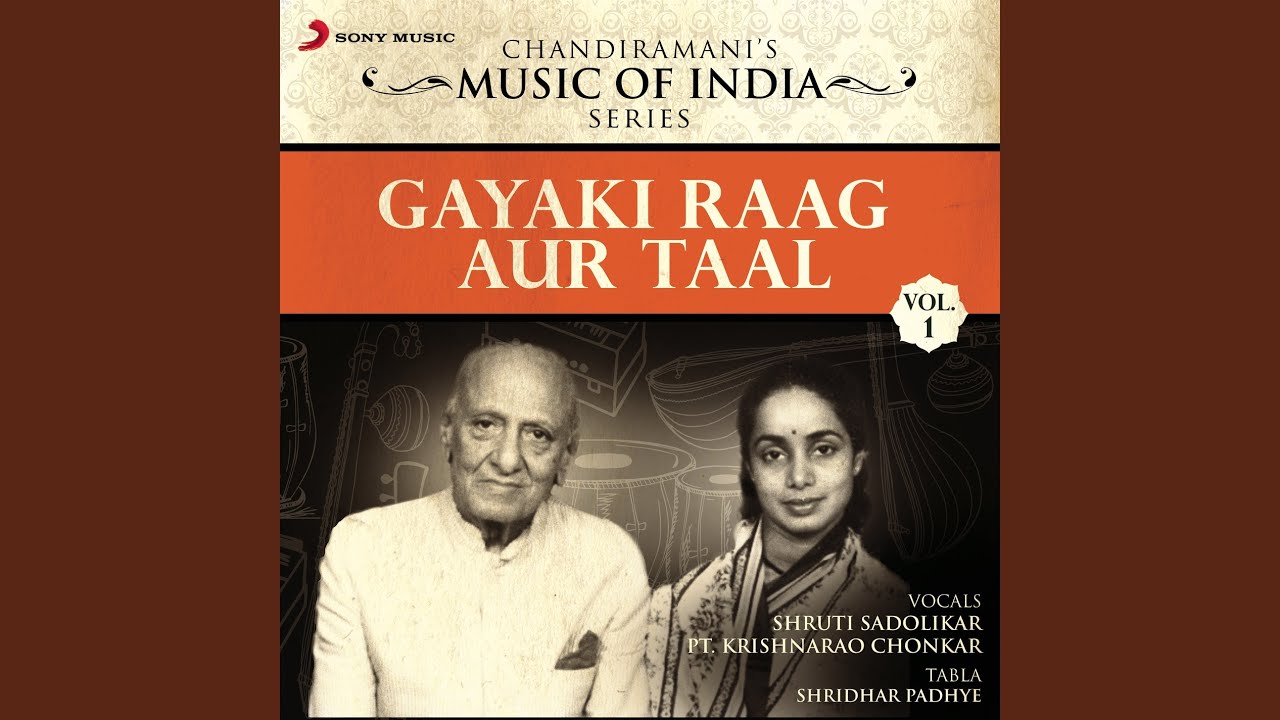सौराष्ट्रटंक
Aarohanam (Ascending) : S R1 G3 M1 P M1 D2 N3 S’
Avarohanam (Descending) : S’ N3 D2 N2 D2 P M1 G3 R1 S
Saurashtram is a janya raga, derived from Suryakantam which is 17th on the Melakarta Scale.
Saurashtram is arguably the raga most familiar to listeners as it is included in almost all concerts! I am, of course, referring to the Mangalam or the last song sung in a concert, which is almost always Pavamana (i.e Ni Nama) by Tyagaraja set to Saurashtram. In fact, there are many songs set to this raga, a number which rather surprised me when I researched for this post. Listeners will probably be familiar with Ninnu Juchi by Patnam Subramanya Iyer, Sri Ganapatini by Tyagaraja and Surya Murte by Muthuswami Dikshitar but there are many other less known songs. The raga does not lend itself to elaborations and the songs are normally quite short pieces, sung quite slowly. The bhava or mood of the raga is both bhakti (devotion) and courage.
Note : The 12 notes in the octave are named as below. Please note that C is used as Sa for the sake of simplicity as the scale is relative in Carnatic Music. Also note that the scales paint only a superficial picture of the raga as the gamakas(ornamentations) are a very important part of a raga.
थाट
राग
- Log in to post comments
- 175 views
संबंधित राग परिचय
सौराष्ट्रटंक
Aarohanam (Ascending) : S R1 G3 M1 P M1 D2 N3 S’
Avarohanam (Descending) : S’ N3 D2 N2 D2 P M1 G3 R1 S
Saurashtram is a janya raga, derived from Suryakantam which is 17th on the Melakarta Scale.
Saurashtram is arguably the raga most familiar to listeners as it is included in almost all concerts! I am, of course, referring to the Mangalam or the last song sung in a concert, which is almost always Pavamana (i.e Ni Nama) by Tyagaraja set to Saurashtram. In fact, there are many songs set to this raga, a number which rather surprised me when I researched for this post. Listeners will probably be familiar with Ninnu Juchi by Patnam Subramanya Iyer, Sri Ganapatini by Tyagaraja and Surya Murte by Muthuswami Dikshitar but there are many other less known songs. The raga does not lend itself to elaborations and the songs are normally quite short pieces, sung quite slowly. The bhava or mood of the raga is both bhakti (devotion) and courage.
Note : The 12 notes in the octave are named as below. Please note that C is used as Sa for the sake of simplicity as the scale is relative in Carnatic Music. Also note that the scales paint only a superficial picture of the raga as the gamakas(ornamentations) are a very important part of a raga.
थाट
राग
- Log in to post comments
- 175 views

